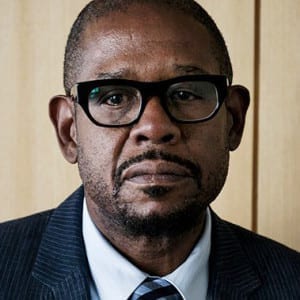The life and lessons of Nelson Mandela offer us many topics on which to reflect. However, in 2020, the lessons learned resound more clearly. Ours is a time of crisis: The planet has been struck by a global virus that carries unprecedented stealth and scope.
This is the kind of plague that reveals our collective weaknesses and failures as a society. While so many of us are confined to our homes throughout the coronavirus pandemic, we should learn from Mandela’s insights and reflections during his lengthy period of confinement.
If one were to read a list of the inequalities suffered by African Americans, it would be just as long as the history of America itself. African Americans were present as the Founding Fathers proclaimed that “all men are created equal.” This truth did not apply to the many men and women of color who were enslaved, but it remains a truth. It’s a truth that cannot be tainted by the inequities and violence that our nation’s laws permitted for generations until the Civil Rights movement of the 1960s started us on a path of equality. It’s a truth that also cannot be tainted by the racism that still lurks in so many corners of our society today. Mandela was no fool when he titled his great book, The Long Walk to Freedom. He knew very well that when racial discrimination is integrated into the legal framework of a country, as was the case in the United States as well as South Africa, it takes time to change things; even when laws have been corrected, one ultimately needs to change hearts to truly tame the monstrous beast of racism.
When we celebrate Mandela, we focus on the leader who stood against apartheid, a system that separated black people from white people and subjected them to abject brutality. However, Mandela didn’t agree with the common belief in South Africa that white people were at war with black people. For 27 years, Mandela lived in a cell, often in solitary confinement. There, he never idled and never stopped learning and growing. He often read and even learned Afrikaans, the language of the “enemy.” In doing so, Mandela thought he could understand his oppressors and see into their hearts.
A passage from The Long Walk to Freedom provides an illuminating lesson on the human capacity to see into those hearts. It’s about Colonel Badenhorst, who was probably the worst commanding officer that Mandela and his comrades suffered throughout their years on Robben Island. Life within the prison deteriorated as soon as he arrived: no more books and other privileges; more surprise searches; more random beatings. At some point, Mandela, that beacon of self-control and stoic fortitude, confesses to feeling anger toward the man. Life was unbearable under the self-righteous, racist Badenhorst. So, Mandela and his peers fought back: They went on a hunger strike and used outside contacts to remove Badenhorst from the island.
Upon his departure, Mandela was called to his office. Badenhorst said he was leaving the island and added, “I want to wish you people good luck.” Mandela was surprised and noted: “Badenhorst had perhaps been the most callous and barbaric commanding officer we’d had on Robben Island. But that day, he revealed another side to his nature, a side that had been obscured but still existed. It was a useful reminder that all men, even the most seemingly cold-blooded, have a core of decency and that if their hearts are touched, they can change. Ultimately, Badenhorst was not evil; his inhumanity had been foisted upon him by an inhuman system. He behaved like a brute because he was rewarded for brutish behavior.”
How Mandela chooses to describe this prison officer is fascinating. He shows that while Badenhorst is callous and barbaric, people can have a change of heart, which can be brought about through both resistance and nonviolence. What Mandela may have realized on this day is that as a social system, racism can only be fought effectively if we create a breeding ground for similar changes of heart. A racist system is not just about structures of discrimination and traditions of inequality. It is about the sense of superiority within the oppressor, and the pained reactions of the oppressed. Racism is learned, and those emotions do not transform as quickly as a legal system that may outlaw it. Those feelings have an inertia that begins in the atmosphere and environment of our upbringing: intonations, glances, and gestures shaping each child’s emotional intelligence and attitudes. This is why Mandela always remained professional with his guards even as he voiced his disagreement with their practices. His strategic objective was to educate his opponent — not to destroy him.
From his prison cell, Mandela both hardened his resolve and opened his mind. Sixty years ago, being confined could not break his hopes of a post-racial society. Today, let us allow our version of that confinement to get closer to building and attaining our dream of equality.




































